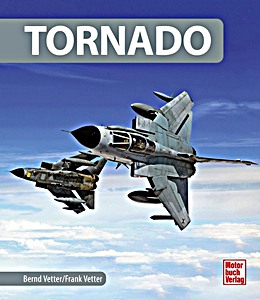Tornado GR1 : An Operational History
Replacing the Vulcan, Buccaneer and Jaguar in the front line of the Cold War, the remarkable swing-winged Tornado GR1 provided Britain s strike capability in the last years of the Cold War in the 1980s, equipping some 10 RAF squadrons.
During the Gulf War, Tornado GR1 crews led Britain s contribution to Coalition operations against Iraq, and in the subsequent years Tornado GR1s were involved almost continuously in operations over Iraq. In 1999 the Tornado GR1 force carried out offensive missions over Kosovo as part of NATO operations in the Balkans.
The Tornado GR1's Terrain Following Radar gave the aircraft a unique capability: it was the first RAF aircraft to have the ability to operate at low-level at night and in all-weathers. The incredible flexibility of both the aircraft and its crews was demonstrated by the successful switch to medium-level operations, using laser-guided weapons, after the Cold War.
This book describes in detail the accomplishments and day-to-day workings of the operational RAF Tornado GR1 units in the UK, Germany, the Middle East and across the globe. It is underpinned by research from original official documents, augmented by the personal accounts by Tornado air- and ground-crews. It is richly illustrated throughout with photographs of the aircraft.
Product details
| Author: | Michael Napier |
|---|---|
| Details: | 256 pages, 25.5 x 18.5 x 2.3 cm / 10 x 7.3 x 0.91 in, hardback |
| Illustrations: | 250 b&w and colour photos |
| Publisher: | Pen & Sword Books Ltd (GB, 2017) |
| ISBN: | 9781473873025 |

Tornado GR1 : An Operational History
Language: English
Buy on Amazon.comBuy on Amazon UK
Buy on Amazon CA







